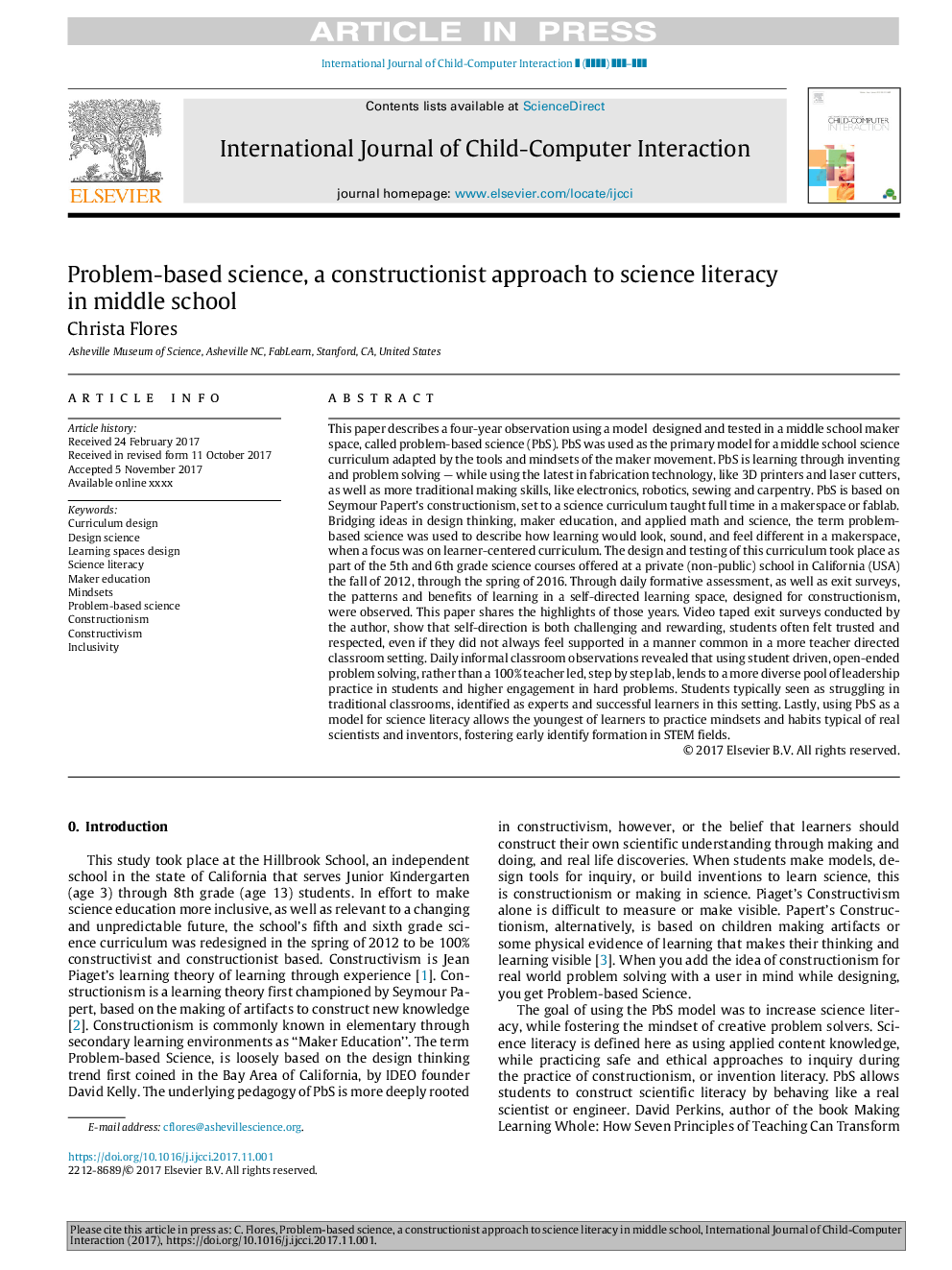| کد مقاله | کد نشریه | سال انتشار | مقاله انگلیسی | نسخه تمام متن |
|---|---|---|---|---|
| 6795230 | 1432779 | 2018 | 6 صفحه PDF | دانلود رایگان |
عنوان انگلیسی مقاله ISI
Problem-based science, a constructionist approach to science literacy in middle school
ترجمه فارسی عنوان
علم مبتنی بر مسئله، رویکرد ساختاری گرایانه به سواد علمی در مدرسه راهنمایی
دانلود مقاله + سفارش ترجمه
دانلود مقاله ISI انگلیسی
رایگان برای ایرانیان
کلمات کلیدی
موضوعات مرتبط
مهندسی و علوم پایه
مهندسی کامپیوتر
تعامل انسان و کامپیوتر
چکیده انگلیسی
This paper describes a four-year observation using a model designed and tested in a middle school maker space, called problem-based science (PbS). PbS was used as the primary model for a middle school science curriculum adapted by the tools and mindsets of the maker movement. PbS is learning through inventing and problem solving - while using the latest in fabrication technology, like 3D printers and laser cutters, as well as more traditional making skills, like electronics, robotics, sewing and carpentry. PbS is based on Seymour Papert's constructionism, set to a science curriculum taught full time in a makerspace or fablab. Bridging ideas in design thinking, maker education, and applied math and science, the term problem-based science was used to describe how learning would look, sound, and feel different in a makerspace, when a focus was on learner-centered curriculum. The design and testing of this curriculum took place as part of the 5th and 6th grade science courses offered at a private (non-public) school in California (USA) the fall of 2012, through the spring of 2016. Through daily formative assessment, as well as exit surveys, the patterns and benefits of learning in a self-directed learning space, designed for constructionism, were observed. This paper shares the highlights of those years. Video taped exit surveys conducted by the author, show that self-direction is both challenging and rewarding, students often felt trusted and respected, even if they did not always feel supported in a manner common in a more teacher directed classroom setting. Daily informal classroom observations revealed that using student driven, open-ended problem solving, rather than a 100% teacher led, step by step lab, lends to a more diverse pool of leadership practice in students and higher engagement in hard problems. Students typically seen as struggling in traditional classrooms, identified as experts and successful learners in this setting. Lastly, using PbS as a model for science literacy allows the youngest of learners to practice mindsets and habits typical of real scientists and inventors, fostering early identify formation in STEM fields.
ناشر
Database: Elsevier - ScienceDirect (ساینس دایرکت)
Journal: International Journal of Child-Computer Interaction - Volume 16, June 2018, Pages 25-30
Journal: International Journal of Child-Computer Interaction - Volume 16, June 2018, Pages 25-30
نویسندگان
Christa Flores,
